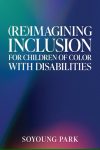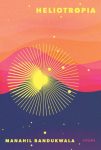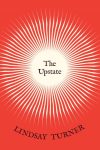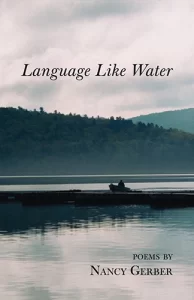
Review by Jami Macarty
Lemonade, the captivating chapbook by Catalina Vargas Tovar, attentively translated by Juliana Borrero, invites readers on an ecological inquiry that “is not a book of poetry” but an engaging “Paranormal Investigation.” At its core, this work explores the enigmatic presence of a mountain from Bogotá’s eastern range. Tovar describes the mountain as a sentinel that “keeps watch… observes / attunes.” Then notes its geological, hydrological, and transformative powers; the mountain “separates this plateau / from the world” and “absorbs water / in excess / turns it into language.” In contrast to the mountain’s enduring existence and transformative powers, we — “a great ensemble of / disoriented / out of tune / apocalyptic / crows” — illustrate the fleeting and “incoherent” nature of humanity.
Tovar’s exploration focuses on relationships between humans and the land, presenting the mountain through a feminine lens: “she… / receives / compensates / transforms.” The collective human presence is conveyed through a first-person plural perspective, presumably including the speaker: “we will be mummies / piled on mummies,” the “ghosts / that drink lemonade on the shore of a Black Sea.” The complexity of our existence and the mountain’s supernatural essence can only be “understood through investigation.”
Parts paranormal, philosophical, and poetic, Lemonade is a vibrant site for experimental conversation “under the sun of climate change” where “we [have] turned to shadows.” The chapbook endeavors two things: To “undo the spell / move in reverse”; To cast a new spell that encourages readers to listen to the land with fresh ears, to “see without tongue.”
Lemonade reflects Catalina Vargas Tovar’s inquiry into the interplay of ecology and culture while also challenging readers to consider how these elements shape our own ways of listening to the “promise” of the land where we live.
Lemonade by Catalina Vargas Tovar; translated by Juliana Borrero. Ugly Duckling Presse, November 2024.
Reviewer bio: Jami Macarty is the author of The Long Now Conditions Permit, winner of the 2023 Test Site Poetry Series Prize (forthcoming University of Nevada Press), and The Minuses (Center for Literary Publishing, 2020), winner of the 2020 New Mexico/Arizona Book Award – Poetry Arizona. Jami’s four chapbooks include The Whole Catastrophe (Vallum Chapbook Series, 2024) and Mind of Spring (Vallum Chapbook Series, 2017), winner of the 2017 Vallum Chapbook Award. To learn more about Jami’s writing, editing, and teaching practices, visit her author website.

















































